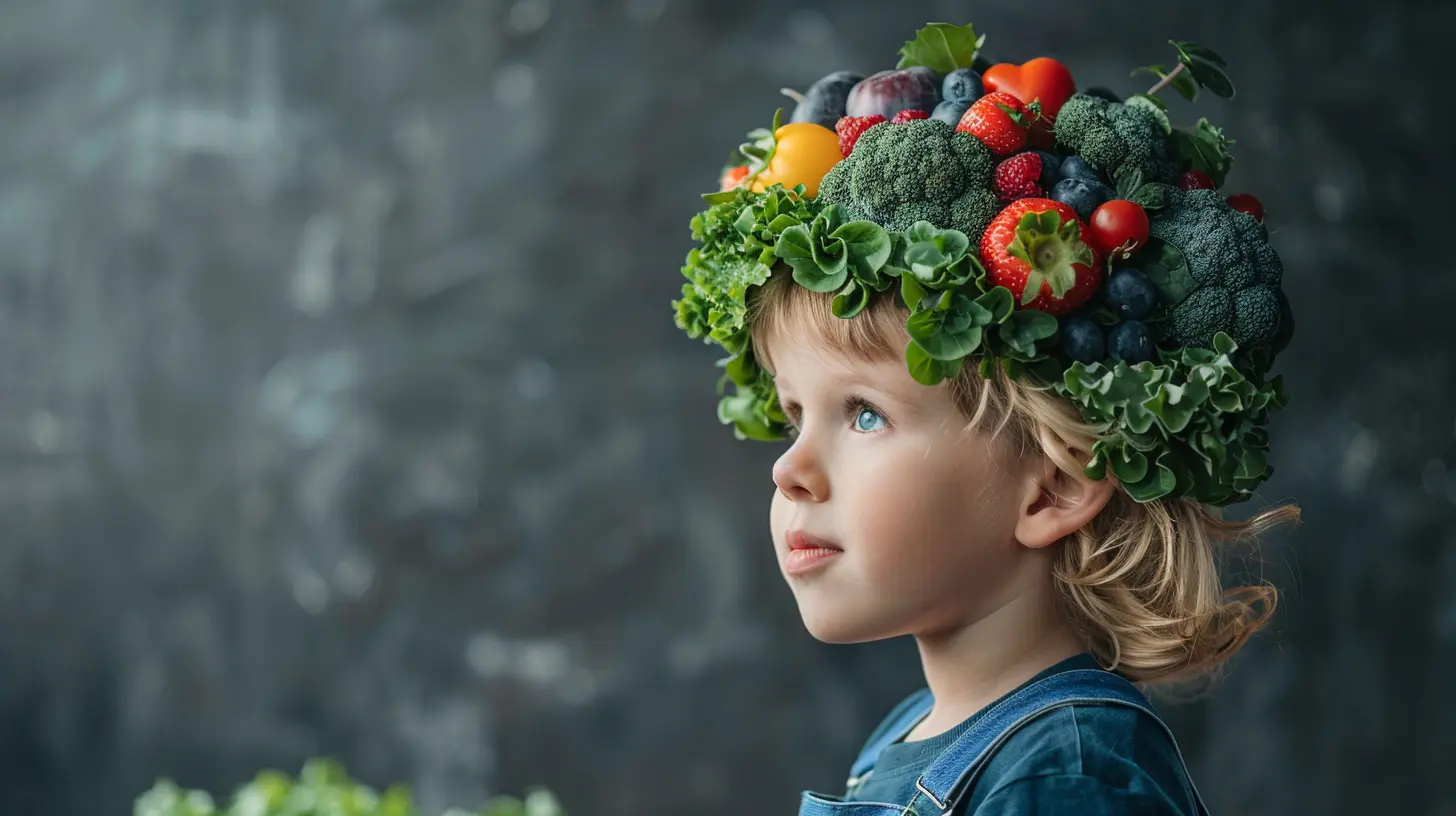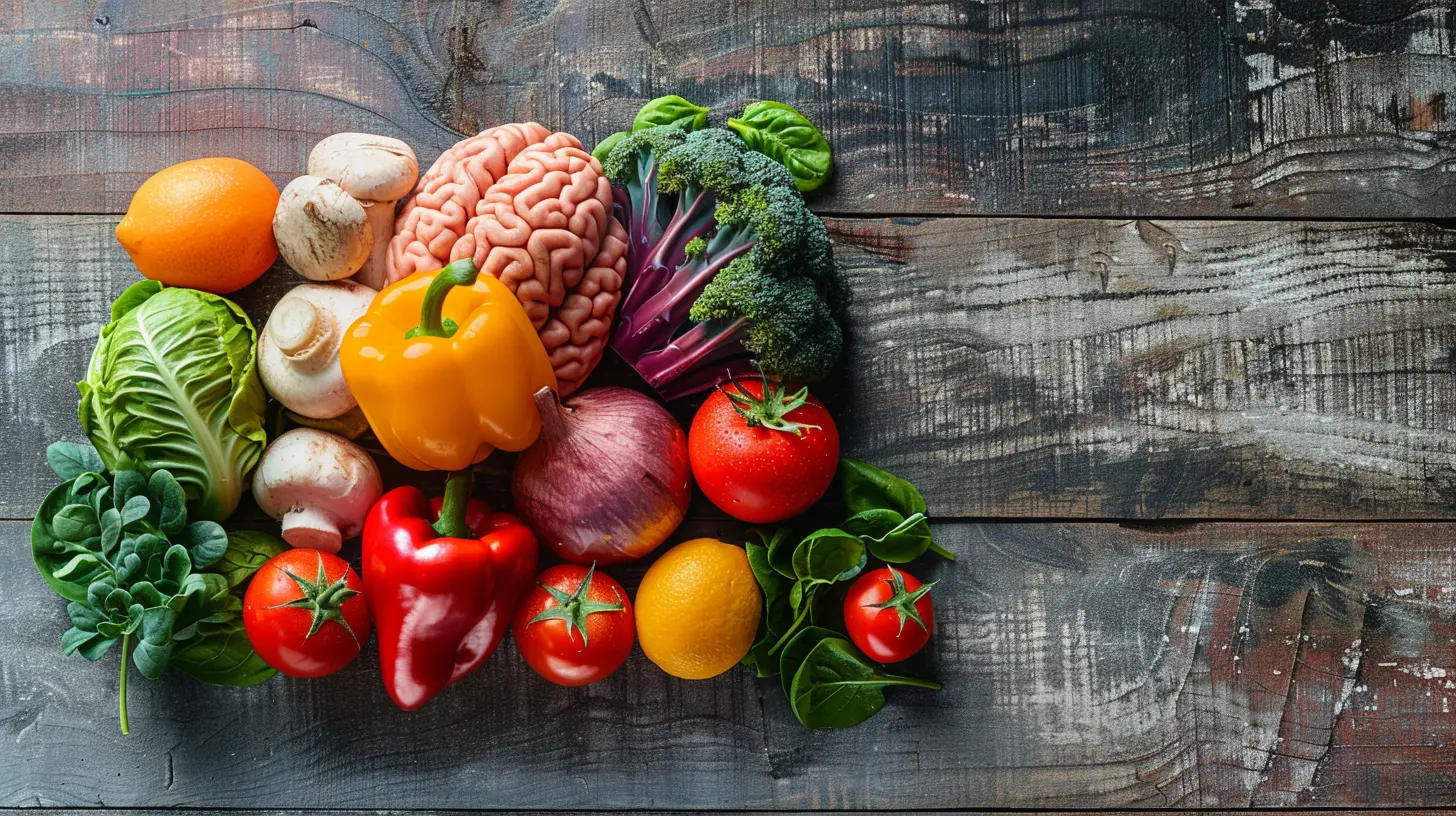16 April 2025
Introduction
Imagine a young sapling, its roots stretching deep into the soil, reaching for the nutrients it desperately needs to grow into a mighty tree. Now, picture a child's brain in the same way—a hungry, eager entity, absorbing everything it can to build a foundation for the future. Just as a tree can't flourish without sunlight, water, and rich soil, a child's brain cannot reach its full potential without proper nutrition.
But what exactly does nutrition do for those growing neurons? How do the foods kids eat today shape their thinking, memory, and cognitive abilities tomorrow? Let's dive deep into the incredible connection between nutrition and the developing brain.

The Brain: A Hungry Powerhouse
The human brain may only weigh about three pounds, but it’s one of the most energy-demanding organs in the body. In children, this demand is even higher because their brains are growing at an astonishing rate. By the age of five, the brain has already reached around 90% of its adult size!To fuel this rapid development, kids need a balanced diet loaded with essential nutrients. Think of it like fueling a high-performance sports car—without the right fuel, it sputters and stalls.
Why Nutrients Matter
Each nutrient plays a unique role in brain development, acting like tiny building blocks for learning, memory, and emotional well-being. A deficiency in just one can throw off the entire system, leading to problems with focus, mood, and even long-term cognitive function.
The Superheroes of Brain Development
Not all nutrients are created equal—some stand out as absolute brain boosters. These power-packed nutrients ensure that young minds stay sharp, focused, and ready to absorb the world around them.1. Omega-3 Fatty Acids: The Brain’s Best Friend
Ever heard of "brain food"? Well, omega-3 fatty acids are exactly that. Found in fatty fish like salmon, walnuts, and flaxseeds, these essential fats are crucial for brain cell communication.- Why it matters: Omega-3s, particularly DHA, support memory, concentration, and overall cognitive function.
- What happens without it? Kids who don’t get enough omega-3s may struggle with attention span, problem-solving, and mood stability.
2. Protein: The Building Blocks of Intelligence
Protein isn’t just for muscles—it’s also essential for neurotransmitters, the chemical messengers that help brain cells communicate. Good sources include eggs, lean meat, beans, and dairy products.- Why it matters: Protein helps with focus, learning, and emotional regulation.
- What happens without it? Lack of protein can lead to sluggish brain function and difficulty concentrating.
3. Iron: The Oxygen Carrier
Iron is like a delivery truck, bringing oxygen to brain cells so they can function properly. Foods rich in iron include spinach, red meat, lentils, and fortified cereals.- Why it matters: Iron deficiency is linked to poor memory, fatigue, and lower IQ scores in children.
- What happens without it? Kids may feel constantly tired, have trouble paying attention, and struggle with learning.
4. Zinc: The Memory Booster
Zinc might not get as much attention as other nutrients, but it plays a key role in memory formation and cognitive stability. You can find it in seeds, nuts, meat, and dairy.- Why it matters: Zinc improves problem-solving skills and enhances brain function.
- What happens without it? Zinc deficiency can lead to attention issues and slower learning abilities.
5. B Vitamins: The Brain’s Energizers
B vitamins, like B6, B12, and folate, help produce neurotransmitters and keep the nervous system running smoothly. These are found in leafy greens, whole grains, eggs, and dairy.- Why it matters: B vitamins help with mood regulation, memory, and concentration.
- What happens without it? Deficiencies can result in irritability, forgetfulness, and low energy.
6. Antioxidants: The Brain’s Shield
Brain cells are vulnerable to oxidative stress, which can slow down cognitive function. Antioxidants, found in berries, dark chocolate, and colorful veggies, protect the brain from damage.- Why it matters: Antioxidants keep brain cells healthy and prevent cognitive decline.
- What happens without it? Without antioxidants, free radicals can damage brain cells, leading to foggy thinking. 
The Dark Side: How Poor Nutrition Hurts Brain Growth
If a well-balanced diet can supercharge a child's brain, an unhealthy diet can do the exact opposite. Unfortunately, in today's world of processed foods and sugary drinks, many kids are not getting the nutrients they need.The Dangers of Junk Food
Picture a brain trying to run on processed snacks, soda, and fast food—it’s like using the wrong type of gas in a car. It might still move, but it won’t be performing at its best.- Too much sugar can cause energy crashes, hyperactivity, and problems with attention.
- Excess unhealthy fats (like trans fats) can lead to sluggish thinking and memory issues.
- Lack of fiber can slow digestion, causing gut problems that can also affect mood and focus.
How Malnutrition Affects Mental Development
Children who don’t receive the right nutrients may experience:- Delayed speech and language skills
- Difficulty retaining information
- Behavioral problems like aggression and anxiety
- Lower IQ and academic performance
This is why early nutrition isn't just about physical growth—it shapes a child's entire future. 
The Gut-Brain Connection
Did you know that the brain and gut are best buddies? Scientists call it the gut-brain axis, a two-way street where gut health directly impacts mood, focus, and cognitive abilities.A diet rich in probiotics (like yogurt and fermented foods) and prebiotics (like bananas and garlic) promotes a healthy gut, which in turn enhances brain function. It's like having a strong Wi-Fi signal between your stomach and brain—the clearer the connection, the better the communication.
Practical Tips for Feeding a Growing Brain
Feeding kids the right nutrients doesn’t have to be a struggle. Here are some simple ways to ensure their brains get the fuel they need:1. Make breakfast count – A balanced breakfast with protein, healthy fats, and fiber sets the tone for the day.
2. Limit processed foods – Stick to whole, fresh ingredients as much as possible.
3. Encourage hydration – Water is essential for brain function, so make sure kids drink enough.
4. Add brain-boosting snacks – Nuts, seeds, berries, and yogurt are all great choices.
5. Lead by example – Kids are more likely to eat well if they see their parents doing the same.
Conclusion: Nourish Today, Thrive Tomorrow
The food children eat today isn't just about filling their stomachs—it’s about building their future brains. From memory to mood, focus to learning, every bite makes an impact.So, the next time you prepare a meal for a growing child, think of it as feeding their potential. A well-fed brain is a powerful one, ready to take on the world, solve problems, and dream big.
After all, a strong mind begins with a strong plate.




Davina Oliver
This article beautifully highlights the vital connection between nutrition and brain development. Understanding how food impacts our children's growth is essential for fostering their cognitive abilities. Thank you for shedding light on such an important topic that resonates with so many parents!
April 18, 2025 at 10:43 AM